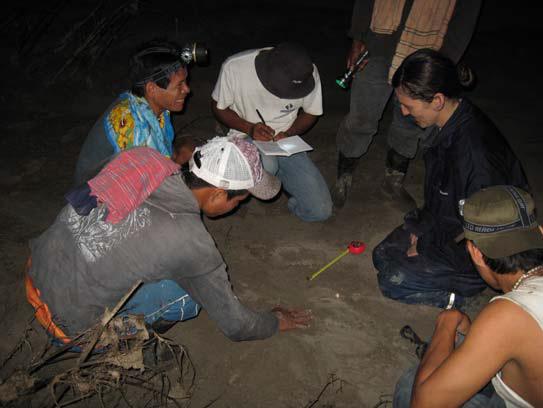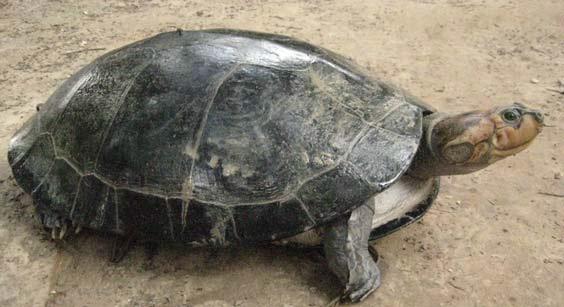Fernando Arbeláez
Other projects
25 Feb 2008
Initial Actions Towards the Conservation of Three Species of Endangered River Turtles in the Colombian Amazonia. Community-Based Nests Monitoring and Educational Pilot Programmes
4 Jul 2012
Community-Based Conservation Program of Three Endangered Species of River Turtles with Amazonian Indigenous Communities of Colombia and Peru 2012
16 Apr 2014
Community-Based Conservation Program of Three Endangered Species of River Turtles with Amazonian Indigenous Communities of Colombia and Peru 2014
The project aims to provide tools and capacity-building to local conservation groups; and to reduce nests and turtles extraction by direct conservation actions and awareness-rising in the area.

This program is proposed as the follow-up of the “Initial actions towards the conservation of three species of endangered river turtles in the Colombian Amazonia” program, based on the experiences and observations gathered by the program during 2008 and the needs expressed by local communities. The continuation of the program Between 2009 and 2010 seeks to conform four local conservation groups of 10 to 15 young people in four indigenous communities of Colombia and Peru. Then, it will provide tools and capacity-building to these groups and to the Curuinsi Huasi indigenous association so they can become leaders in river turtles conservation in the area, in order to promote natural resources conservation as a productive alternative.

At the same time, it aims to reduce exploitation of river turtles for commercialization and for local consumption through direct actions such as: awareness-rising and education towards turtle conservation within participating and non-participating neighbour communities; awareness-rising activities with children through art and play; transmission of traditional knowledge related to turtles by elder people to the young people groups and, through them, to the rest of the community; protection of a community conservation beach by local conservation groups, supported and working in conjunction with environmental authorities from both countries; and translocation of nests from non-protected beaches to the community conservation beach. Finally, local conservation groups will be stimulated to put into practice the knowledge they acquired during the program by proposing specific conservation actions focused on turtle conservation to carry out in 2011, advised and accompanied by Fundacion BioDiversa Colombia.